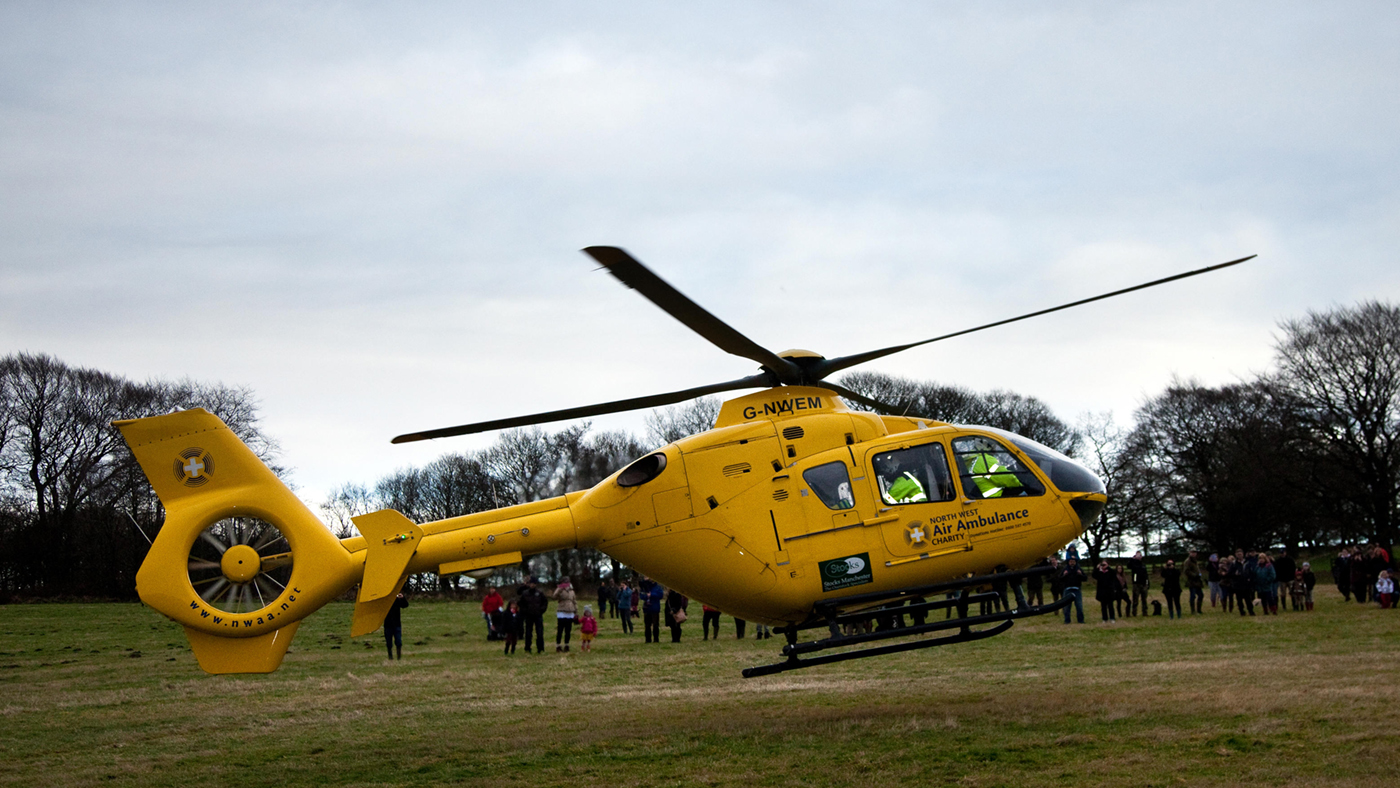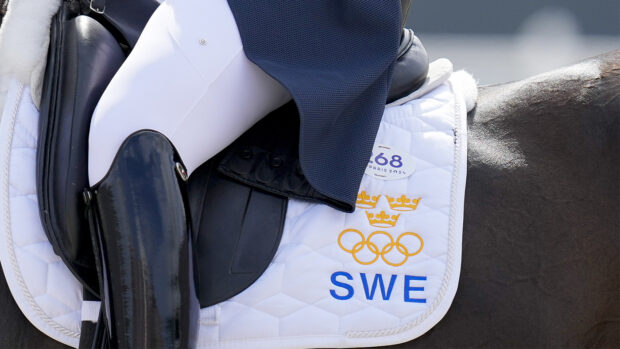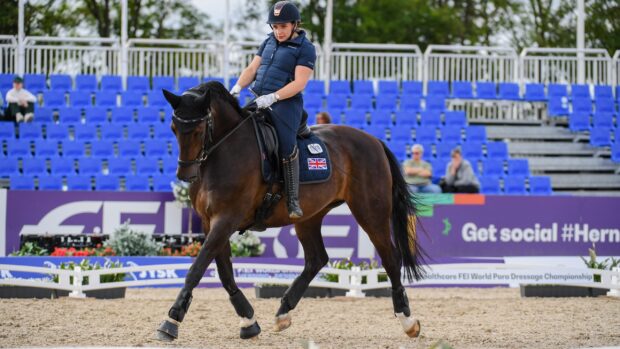A senior trauma doctor has urged people to send injured riders to hospital with the helmet they were wearing as part of a training clinic on potentially life-saving steps anyone can take to help someone with a head injury.
Dr Diane Fisher, who is a rider as well as a trauma consultant attached to both Royal Stoke University Hospital and the Shrewsbury and Telford Hospital NHS Trust, spoke about the simple first-aid actions people can take if a friend hits their head at the yard.
“The part that worries me is the secondary injury — I can’t do anything about the fact you’ve hurt your head, but what I can do is make sure that people know what to do with the secondary injuries,” said Dr Fisher in her “rider clinic” webinar on 28 January, held in association with Champion.
“When someone has had a head injury, their head tends to drop down and their tongue goes to the back of their throat and obstructs their airway so they are not able to get oxygen in and around their body.
“You’ve already got a piece of brain tissue that’s in pain and the last thing in the world it needs is to be starved of oxygen, so it’s really important that as soon as an injury has just happened that we work through the first aid.
“From an equestrian point of view, you do need to check it’s safe for you to get across to that casualty; if you are with people, get someone to catch the horse so he doesn’t come running back over you or the rider.”
The Rider Clinic Live: Head Injury
Wow what a clinic this is!! I'll be joined by Helen from Champion Equestrain. I'll chatting about Head Injury, what to do before the paramedics arrive, when does somebody need to go to hopsital and concussion. Helen will take us through rigorous testing and research that goes intop keeping our heads safe as possible and how to choose and care for them so they last as long as possible. There is also an AMAZING GIVEAWAY of a hat from Champion Equestrian for one lucky follower!! Keep your eyes peeled for the giveaway posts!!!
Posted by All_the_kings_horses_ on Thursday, January 28, 2021
She added while the advice is that people shouldn’t remove a person’s helmet if they are not trained, that has to be balanced with whether the person’s airway is obstructed and whether you are going to be able to open that with the hat on.
“If that person is not breathing, then if you need to take the hat off, you take the hat off. Without the airway, there is no question that they will die or become brain damaged from lack of oxygen as opposed to a head injury that may not be that bad,” she said.
“If they are breathing ok and the hat is on that’s fine, leave it alone and leave them where they are. However, if the airway for whatever reason is not open or they are vomiting, you’re going to have to move them to get them onto their side otherwise they are going to choke. It’s a case of dealing with what’s thrown at you.”
Dr Fisher demonstrated a jaw thrust as a way of opening someone’s airway without tilting their head and moving the neck. This involves simply putting a finger each side of the jaw, below the ears, and gently pushing forwards (see tutorial video below).
Here we look at the First Element in the Trauma Assessment- Airway. No airway = imminent death learn a airway…
Posted by All_the_kings_horses_ on Tuesday, December 8, 2020
She urged equestrians — especially at the moment while the NHS is dealing with the pandemic — to be sensible, lunge first if appropriate, and to be realistic about their riding ability. She added trauma teams have seen head crush injuries, which have happened at places such as gates, and stressed that for this reason it is “incredibly important” people wear hats on the ground when dealing with horses as well as when riding.
Dr Fisher also strongly recommended riders download the What3Words app and urged them to take responsibility for having a plan about what to do if things should go wrong. This includes telling someone where you are going hacking and what time you are back, and if you are hacking out with a friend, making sure you both know what to do if anything happens.
“In hospital we are really concerned with mechanism of injury and this is how my Facebook page started as I can’t tell you how many equestrians I’ve seen or know who say ‘I had a touch of concussion’ or ‘I had bit of a bang to the head’ — it’s not, it is a traumatic brain injury,” she said. “It’s not ‘just a little fall’. As equestrians we are quite hard, I think, and we have that [culture] of ‘fall, get straight back on’. I think we are moving away from that now.
“When you come into hospital, we need to know as much as possible about how the accident happened and what that person was like afterwards, so you need somebody to stay with them the whole time while others are going off and phoning for help, or catching the horse.
“If you’re the person standing with them, you need to be aware of: are they making sense; is there any big change in what their pupils look like; are they saying they feel sick or are being sick and are they sleepy. That’s because you may need to upgrade your ambulance call as it’s not unusual for someone to be a bit stunned after a head injury and then suddenly start to deteriorate. At that point, you can ring the ambulance service back and say ‘I know they were awake five minutes ago, but they’re not now’ — that would take you up from a category three to a category one, which is an immediate response.”
Article continues below…
You might also be interested in:

Rider calls for others to know life-saving first aid during pandemic
“One in 10 people survive an out-of-hospital cardiac arrest, but that ratio massively increases the quicker somebody can start CPR”

12 essential pieces of first aid advice for an equine emergency
National pet charity Blue Cross has highlighted horse health care with some essential first aid tips for owners

Calls for riders to download ‘life-saving’ location app
‘You never know when an emergency might happen, but with what3words, you’ll always be able to say exactly where help
She added that sending a rider’s hat with them to hospital is “particularly important” at the moment because of pandemic restrictions on visitors, and if anyone is able to jot down on a piece of paper what happened to give to the paramedics, that is a real help.
“Because of Covid there is no visiting, so nobody is coming in with [the casualty], they come in on their own,” she said. “And if their level of consciousness is low, they can’t tell me what’s happened. I need a baseline and a degree of suspicion, so when I or the radiologist is peering at your scans, if we know what happened, we have a really good idea of what we are looking for and it may change how we manage you.”
Horse & Hound magazine, out every Thursday, is packed with all the latest news and reports, as well as interviews, specials, nostalgia, vet and training advice. Find how you can enjoy the magazine delivered to your door every week, plus options to upgrade to access our H&H Plus online service which brings you breaking news as it happens as well as other benefits.





